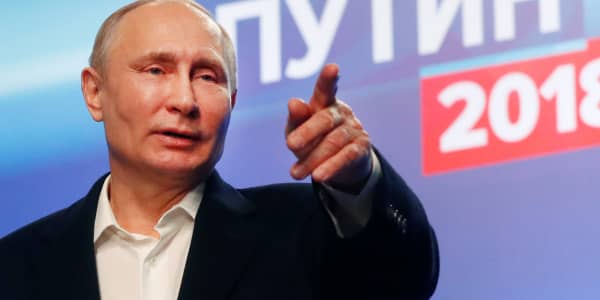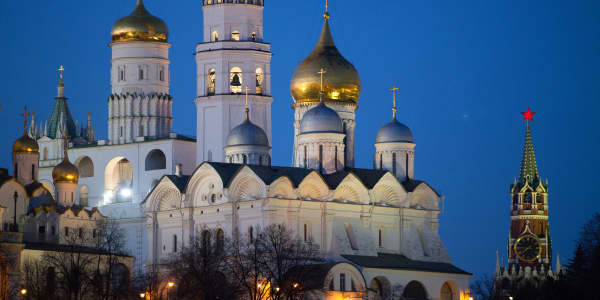Russia's relations with it global counterparts have sunk to new lows as Moscow appears to have refused an olive branch from one of its biggest trading partners, Germany.
On Thursday, Germany's Foreign Minister Frank-Walter Steinmeier said that the Group of Seven leading industrialized nations should allow Russia back into the group in the longer term.
"I believe that we cannot have an interest in keeping the G-7 format a G-7 format in the long term," Steinmeier told journalists Thursday after he had met with his Ukrainian counterpart ahead of a G-7 summit on Sunday and Monday, according to Reuters.
Read MoreRussia wants more gold—here's why
The G-7—which is made up of Britain, Canada, France, Germany, Italy, Japan and the United States—allowed Russia into the powerful group in 1998 to form the G-8, only to suspend it following the annexation of Crimea and conflict in Ukraine last year.
With a bigger picture in mind, however, Steinmeier said "a look at the world shows that we need Russia as a constructive partner in a number of conflicts," including the Middle East.
Despite the approach, a senior Russian official appeared to rebuff the olive branch, saying that the country was not seeking re-entry, news agency RIA Novosti reported.
Read MoreRussia faked MH17images: Report
According to the state news agency, Russian Deputy Foreign Minister Sergei Ryabkov said Thursday that "The G-8 format was not always that productive, working in the BRICS (Brazil, Russia, India, China and South Africa) and G-20 is much more interesting for us."
Olive branch
Ryabkov's comments signal Russia's rejection of the "old world" of Western nations—countries that have also imposed sanctions, and its look for new spheres of power, influence and economic growth.
For traditional European powers like Germany, Russia's economic isolation has had a damaging impact on their exports. As part of a retaliatory ban on European goods by Russia, German exports to the country fell 18 percent in 2014, according to data from Destartis, Germany's national statistics office, published in May.
Read MoreIs Finland reallygetting ready for war with Russia?
A powerful pro-Russian business lobby in Germany called for Russia to be allowed to attend Sunday's G-7 summit, being held in Germany, but German Chancellor Angela Merkel is reportedly cool about the idea, telling parliament in late May that it was "unimaginable" as long as "Russia does not commit itself to the fundamental values of international law."
CORRECTION: This version corrected Merkel's quote to "international law."
—By CNBC's Holly Ellyatt, follow her on Twitter @HollyEllyatt. Follow us on Twitter: @CNBCWorld





